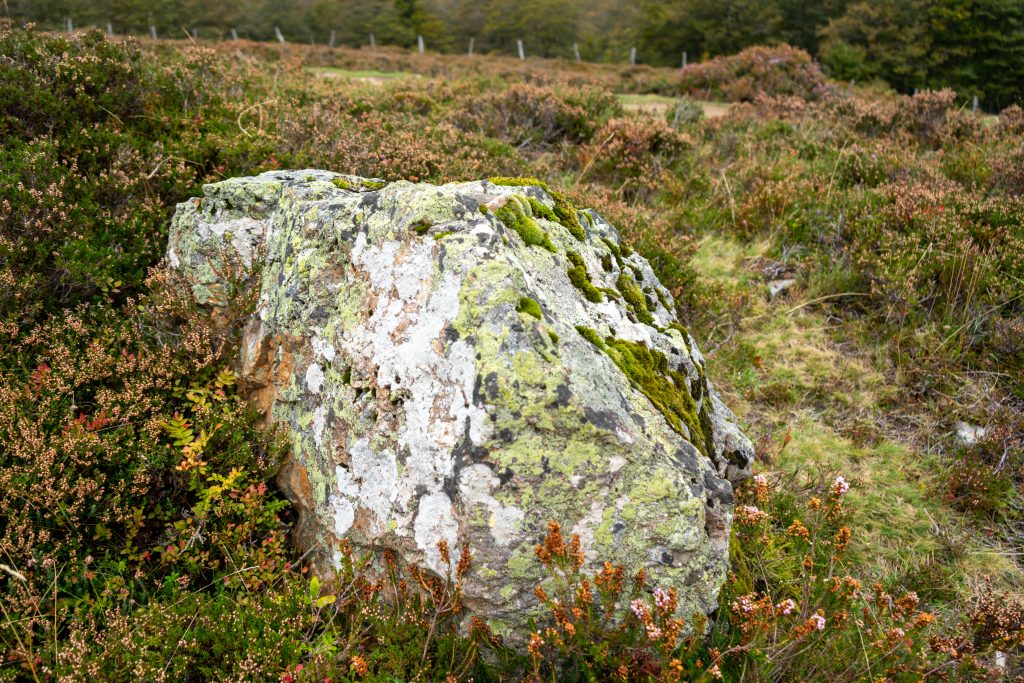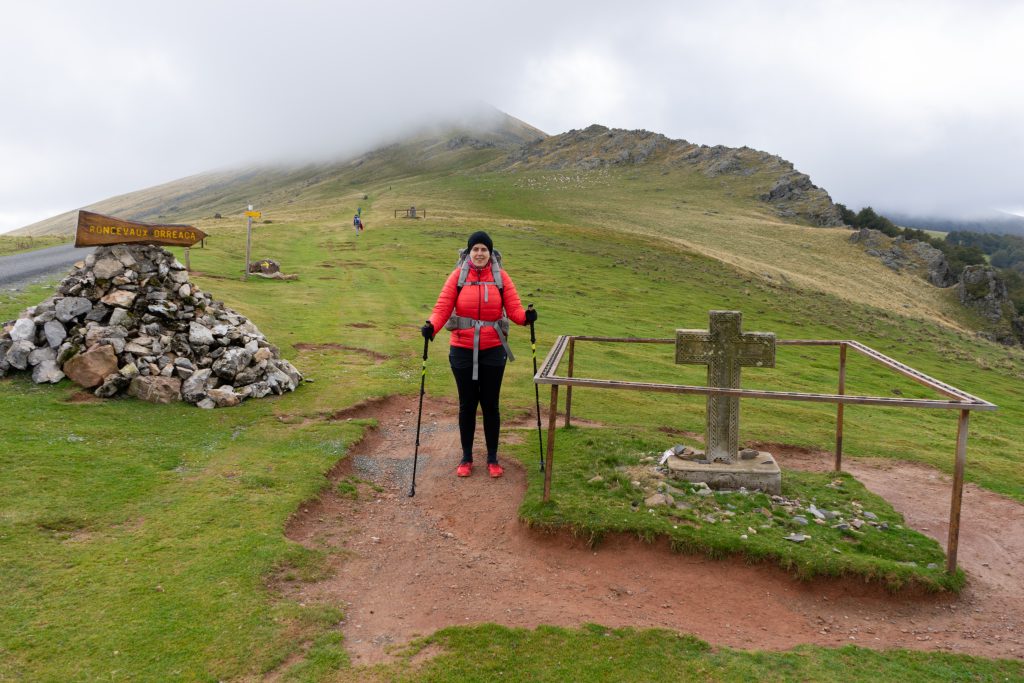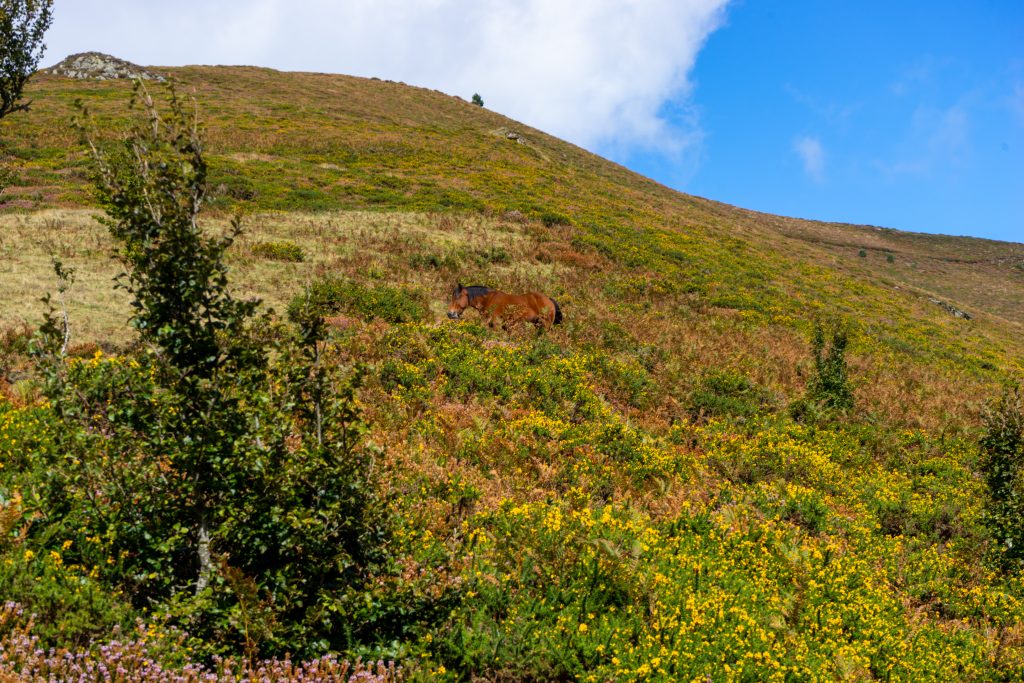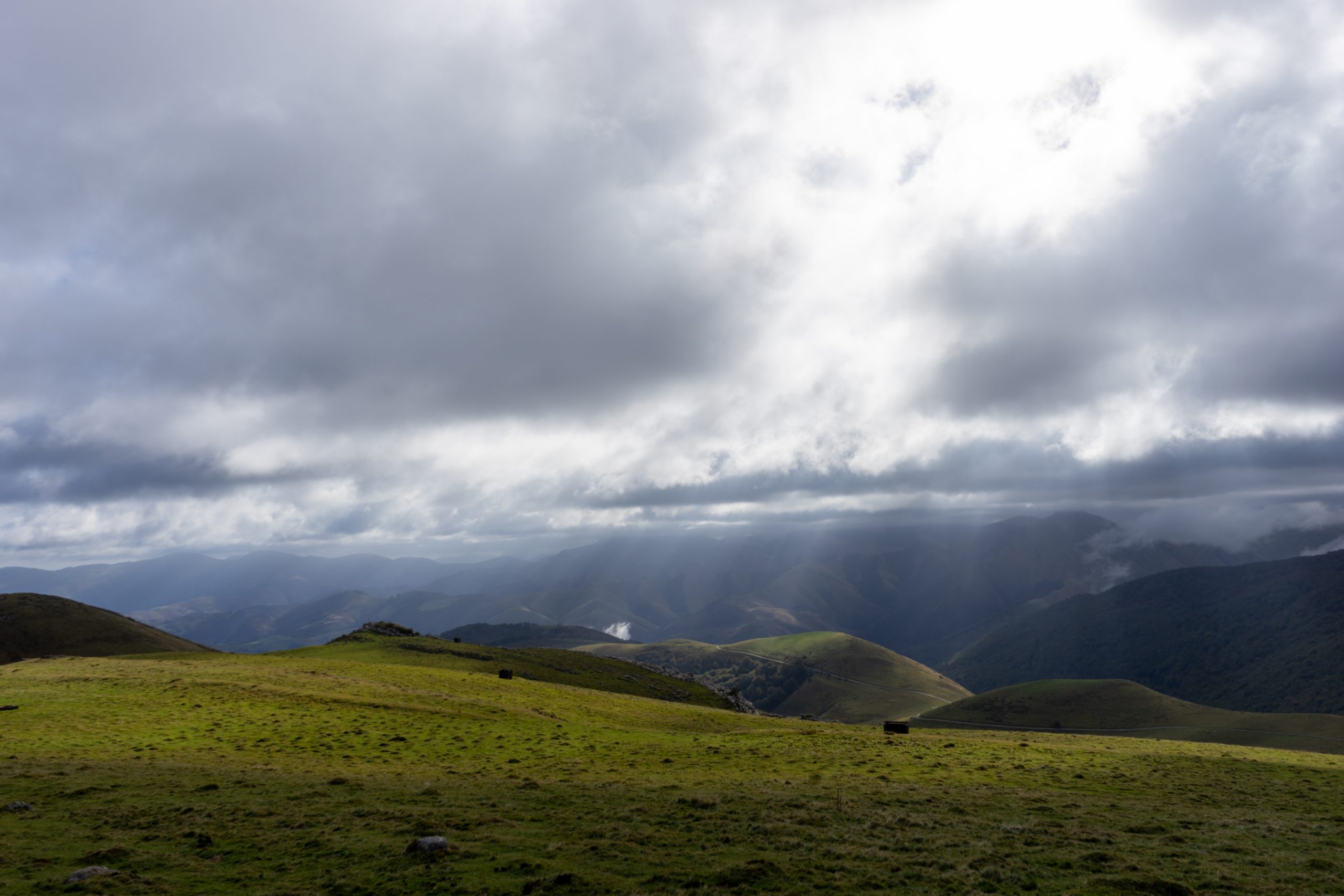According to my guidebook, all Camino stages through the Pyrenees are classified as difficult. Camino Frances is like an army bootcamp, you have to go through the worst in the beginning to appreciate any little comfort in the future. Interesting fact – the Pyrenees are not the highest point on this Camino route. The top point is Cruz de ferro a few weeks further east on the road. So what exactly makes the crossing so difficult?
People in the albergue Orisson made us sandwiches for the trip. I still consider sandwiches to be a travel food and 5 years among Dutchies didn’t change that. I did miss a bicycle when I was walking up a smooth asphalt road. The weather improved from almost zero visibility to partially cloudy, so we did not miss the spectacular views. Green hills above the tree line were dotted with rocks and sheep, sometimes quite hard to distinguish. This could be an interesting task for an image processing AI. It seems like it already resolved the dog vs. muffin issue.

Speaking of dogs, they did not look very different from sheep either. One of them smelled sandwiches from far away. An Irish girl Hannah walking nearby really enjoyed petting this huge ball of fur. Soon after we were passed by the dog’s owner. Hannah complimented the man on his lovely dog. He just shook his head and walked away without a word. His long hair and short-sleeve T-shirt were flapping in the wind. Wow, the local guys are tough! And I was so proud of myself to wear only two layers in this weather. I also had a scarf, hat and gloves.
Constantly going up is not only exhausting, but quite demoralizing. Locals know that and that’s why there was a food truck shortly before the highest point. Crossing the mountains is difficult because weather can shift at any minute. At one point, after crossing to Spain, we stopped to enjoy our lunch break.
We barely finished because we were surprised by an icy wind of change.
The wind brought a dark cloud right around us. This basically meant “Run as fast as you can”! An extra motivation worked and we caught only a few icy rain drops.

Respect to the mountains is emphasized by many small crosses and memorials. The dates of deaths were in January as well as in July. Earlier we passed a warning sign saying that our trail is forbidden from November till April. I wonder how many people ignored it or did not even see it in snow storms. Quite many deceased came from Brazil. Maybe because Paulo Coelho forgot to write about practical things in his Camino book?
The way down was so steep that we had to use the switchback technique. The most challenging part was to tighten my shoe. Beautiful horses were announcing their presence very close to the trail. Later we learned that in terms of use, they are no different from cows.

We finally arrived to Roncesvalles. This little village has an impressive monastery complex that was transformed into an albergue for 200 people. We were surprised how clean and cosy it was. The routine continued – shower, laundry, dinner and sleep on annoying disposable sheets. We were woken up at 7 am by a song from an opera. Everybody out!
The following stage to Zubiri was an all-day-long descent. Despite eating well the night before and in the morning, I was running out of energy. Maybe I wasn’t in such a good physical shape as I thought. But how can you train for the Camino in a city like Barcelona where gyms are closed? Running or biking every day is not even close to the load that you apply on the Camino. Walk up and down the Motjuïc hill several times per day? That would be almost a full-time job.
Last maybe 5 km before our destination I turned into a zombie, my body was walking on autopilot. Emergency jam packages didn’t help much. We were facing an extremely difficult terrain – steep downhill covered with brittle shale. The trail was full of canyons and step cascades. One wrong step, the shale breaks and you break your ankle. At this point I was crying, the terrain was intimidating. I refused to give up in any way and stopped looking at the bottom of the hill. How do you get somewhere? One small step at a time.
We were the last pilgrims to arrive to Zubiri, so there was no place for us in the only open albergue. No problem, it was actually nice to have a private room. Pilgrims were dancing outside and drinking their victory glasses as fast as possible. I could barely move from my bed. But let’s see who feels better in the morning. In walking and in alcohol I follow the same rule:
Chi va piano, va sano e va lontano!

Leave a Reply